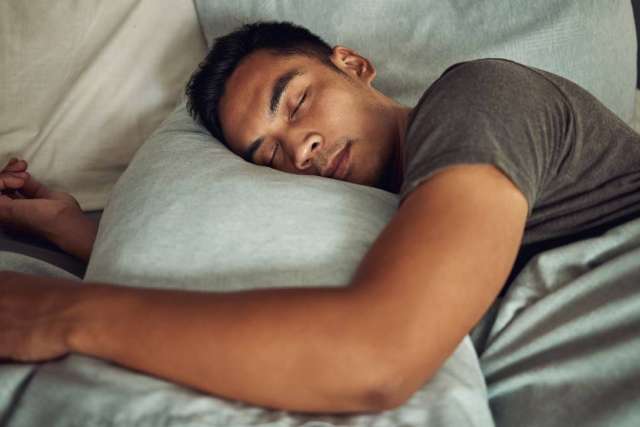The problem is that, when it comes to your health, adequate sleep ranks right up there with a balanced diet and regular exercise. If you don’t make a habit of getting good sleep, you might pay for it later.
If you’re ready to make pillow time a priority, here’s what you need to know:
Why sleep is important
A night of poor sleep can mess with your mood, judgement and ability to concentrate. But the effects of inadequate sleep go far beyond a groggy morning. Poor sleep habits can have long-term health consequences — getting five hours or less of sleep per night can increase the risk of dying prematurely by 15%.
If you don’t get enough sleep on a regular basis, you could also be increasing your risk of developing chronic conditions, including:
- Heart disease: In people with existing high blood pressure (hypertension), even a single night of insufficient sleep can cause elevated blood pressure over the following 24 hours.
- Mental health issues: Research connects ongoing sleep issues to depression, anxiety and mental distress. Some studies found that self-reported symptoms such as stress, anger, pessimism and sadness improved dramatically when subjects got back on a normal sleep schedule.
- Obesity: Not getting enough sleep can cause hormonal imbalances, affecting your appetite control and metabolism, and making you more likely to have an above-average body mass index (BMI).
- Type 2 diabetes: Without enough sleep, the body struggles to process glucose properly, increasing the risk of developing diabetes.
Recommended hours of sleep
The ideal amount of sleep can vary from person to person and changes as you age. The Centers for Disease Control and Prevention (CDC) recommends a certain amount of sleep per day by age:
- 18 to 60: seven or more hours
- 61 to 64: seven to nine hours
- 65 and older: seven to eight hours
Why some people may need less sleep than others
While some people need the maximum hours of recommended sleep to feel rested, others thrive on less. To understand why, researchers studied naturally short sleepers (who get less than six-and-a-half hours) to look for common gene mutations. They found a rare mutation with a connection to the area of the brain involved in regulating sleep behaviors. Experts believe the mutation may help with sleep quality and sleep efficiency.
How to know if you are getting enough sleep
One out of three adults reports sleeping less than seven hours per night, but almost half of all Americans say they feel sleepy during the day most days of the week. If you’re worried that you aren’t getting enough shut-eye, there are symptoms to watch for, including:
- Depression
- Difficulty with memory
- Getting sick more often
- Increased appetite or weight gain
- Irritability and moodiness
- Puffy eyes, bags or circles under the eyes
- Trouble concentrating
Just getting the recommended amount of sleep each night does not necessarily mean you’re getting quality sleep. You may not be getting good sleep if you’re not feeling rested even after you’ve slept enough, repeatedly waking during the night or experiencing signs of sleep disorders, such as snoring, restless legs or gasping for air. If you have any of these symptoms, make sure to discuss your concerns with your doctor.
Tips to improve sleep quality
Making some small changes to your daytime activity and nighttime routine can make a big impact on the quality of the sleep you get. To improve your sleep, try:
- Avoiding food and drinks before bedtime, especially large meals, caffeine and alcohol
- Being consistent with your schedule, by going to bed and waking up at the same time each day (including weekends)
- Creating a calming atmosphere, by keeping your bedroom dark, quiet and at a comfortable temperature
- Getting exercise earlier in the day
- Removing electronics from the bedroom and shutting down computers, phones and TV at least 30 minutes before bedtime
If you are having trouble sleeping or staying asleep, reach out to your primary care physician. You can find more information on UCLA Health sleep medicine physicians and sleep disorders treatment on our medical services page.



